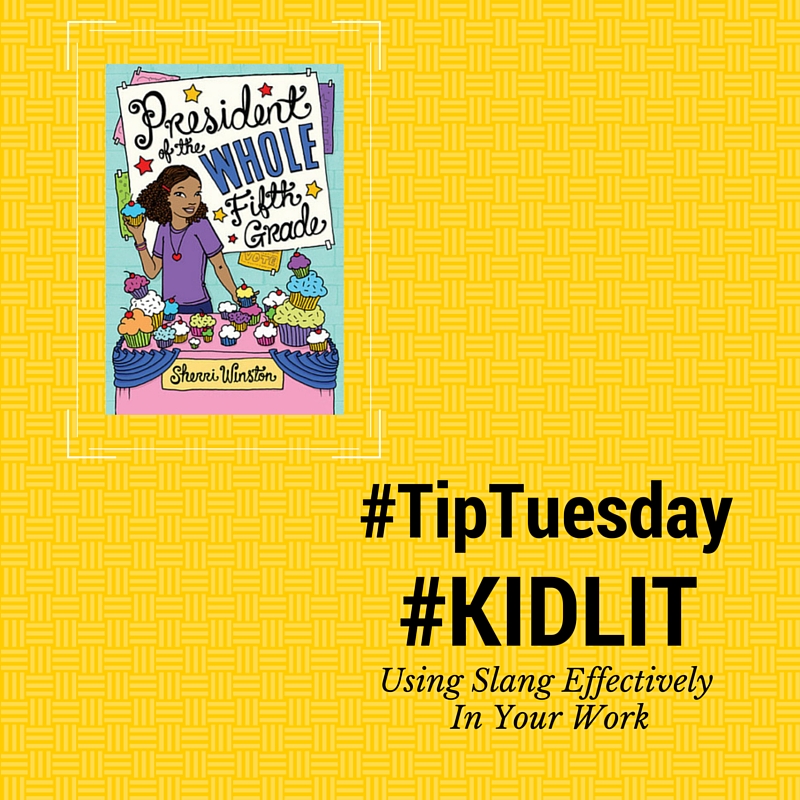I recently reviewed President of the Whole Fifth Grade by Sherri Winston and was very impressed about how effectively she used slang in the text without seeming cheesy or corny.
After perusing the text more, I picked up some awesome tips about using slang in a book, which makes your book more relatable to younger readers and keeps their interests.
Here are three strategies on how to use slang in your book.
Thoughts
Winston often employs colloquialisms in Brianna’s thoughts. For example on page 14, Briana thinks “Oh, snap, crackle, and pop!”, a popular phrase that young people say. Winston further distinguishes it as slang by italicizing the thought.
On page 20, Brianna calls something ‘Foolishness,” another great example of Brianna using vernacular in her thoughts. Foolishness is a word most young people wouldn’t use in their everyday speech, but because the word has been picked up to describe something ridiculous, we see Brianna thinking the word ‘foolishness’ about the situation at hand during the scene.
‘Foolishness’ is also italicized and bolded to show that it is slang as well and furhter express Briann’s disbelief at the situation at hand in the scene.
Dialogue
Another effective place where Winston uses slang is in the dialogue of the characters, young and old.
When Brianna walks into her classroom after accidently dyeing her hair blue, her classmate Todd says to her “Greetings, freak!” (pg 92). We all know that ‘freak; is a colloquial term to describe something weird; thus, Ms. Winston effectively using slang in the dialogue.
Later in the book, Miss Delicious, Brianna’s role model, gives advice to Brianna, “If you’re asking if we’ve made mistakes that either one of us wish we could take back, then, baaaaybee, the answer’s absolutely, positively, one hundred percent yes!” (199). The way Miss Delicious exaggerates baaybee and the way the exaggerated word is italicized are further effective uses of vernacular in dialogue.
Use a second pair of eyes.
I think the most important thing Winston did was to make sure the language was approved by young people. In the acknowledgements at the end of the book, she thanks a group of third, fourth, and fifth graders for reading multiple drafts of her work, which serves as a lesson to us.
Don’t be afraid to get a youngster to read your work to make sure it’s resonating the way the language should. She obviously used an editor as well to ensure that the work was polished, but most importantly Miss Winston didn’t mind taking their suggestions, which is an important lesson to us as writers.
Don’t be so in love with your words that you aren’t willing to make it the best it can be with the help of constructive criticism.
And there you have it, three tips on how to use slang in your work.
Thanks for reading, and if you don’t mind sharing to spread the needs, I’d appreciate it.
Cheers.
#BossWriter-In-Chief
Latest posts by #BossWriter-In-Chief (see all)
- Here’s Your Love Letter Template - February 12, 2019
- Thanks For Subscribing! - February 12, 2019
- What I Learned From My First Facebook Ad - February 16, 2017


